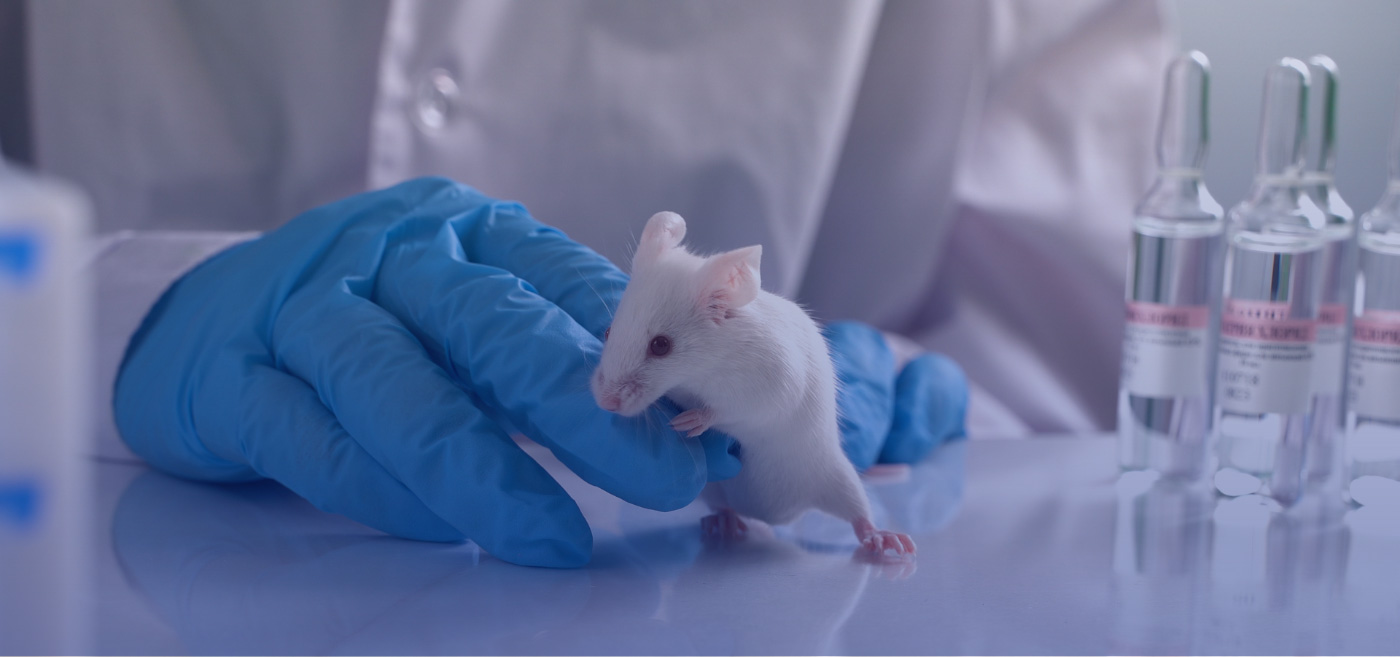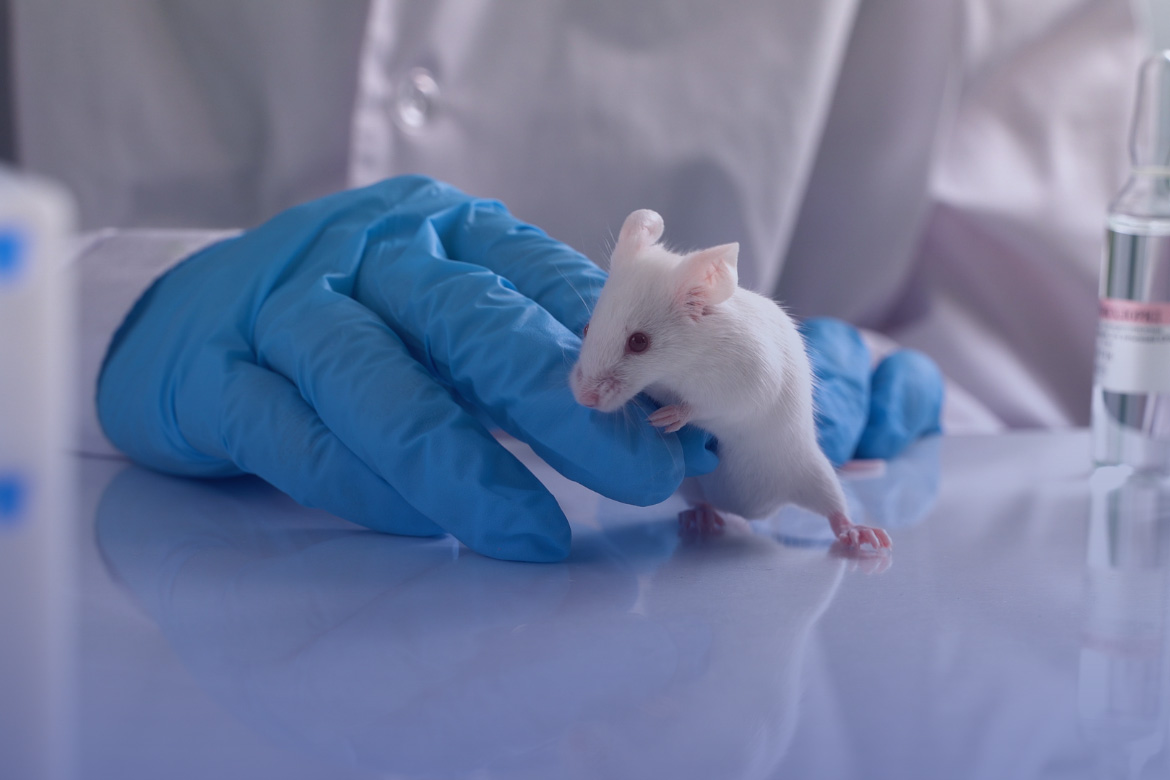Overview of In Vivo PK and TK Services
BioDuro-Sundia offers a comprehensive range of in vivo PK and TK studies for drug discovery and development. These studies use animal models to assess how target compounds perform in the human body. Each study measures specific pharmacokinetic (PK) and toxicokinetic (TK) properties to evaluate how compounds interact with various biological systems.
In vivo PK studies are a critical component of the drug development pipeline. Data from these studies can expedite your drugs’ progression to clinical trials and prepare them for large-scale manufacturing.
Rodents and Non-rodents
We offer a wide range of small-scale in vivo pharmacology studies, including both rodent and non-rodent options. With a broad selection of studies, you can customize your research based on your substance and long-term goals.
Species: Mice (CD-1, C57BL/6, etc.), rats (Sprague-Dawley, Wistar, Wistar-Han, etc.), Lakeview Golden (LVG) Syrian hamsters, Guinea pigs
Administration Routes: Oral (PO), intravenous (IV bolus, infusion), intraarterial (IA), intramuscular (IM), intraperitoneal (IP), intratracheal (IT), subcutaneous (SC), transdermal (TD), oropharyngeal aspiration (OA), intrarectal (IR), intranasal (IN), single or multiple doses
Surgical Techniques: Bile-duct cannulation (BDC), jugular cannulation (JVC), portal vein cannulation (PVC), carotid artery cannulation (CAC), JVC/CAC, JVC/PVC
Biological Matrices: Blood, plasma, serum, bile, urine, feces, cerebrospinal fluid (CSF), bone marrow, tissue (liver, brain, kidney, etc.) or tumor specimen
Mouse PK: Serial bleeding, Cassette-dosing (up to 5-in-1), Excretion pathways
Turnaround Time: 5-10 working days for small molecules, 5-10 working days for bioanalysis of large molecules (overall turnaround depends on the in-life sampling period)
Large Animal PK/TK
Large animal PK/TK studies may be necessary for certain drugs. Large animal models are a more complex alternative to small-scale in vivo options. They often reflect human biology more accurately, providing more detailed results. We provide a wide range of customizable large animal studies to meet compliance standards and support your drug development goals.
Species: Dogs including in-house dog colonies: 48 Beagle dogs (Shanghai site) and 68 Beagle dogs (Jiangsu Site), Monkeys including in-house NHP colony: 96 Cynomolgus monkeys (Rhesus monkeys also available) (Jiangsu site), Other species including New Zealand rabbits, Bama mini-pigs, ferrets, etc. (Jiangsu Site)
Administration routes: IV bolus, IV infusion, PO (liquid, capsule, tablet), IM, SC, dog knee joint administration, rabbit vitreous injection, minipig / rabbit patch administration; single dose or cassette dose (up to 5-in-1)
Dosing design: Crossover or non-crossover
Fast or fed (food effect)
Expanded biological matrices sampling: blood, plasma, serum, urine, feces, serial CSF sampling from dogs and monkeys
Excretion pathways
PK/PD evaluation
Turnaround time: 5-10 working days after receiving test compounds (non-naive animals & non-crossover dosing design)
Exploratory Toxicity Studies
Maximum Toleration Dose (MTD)
Dose Ranging Finding (DRF)/Toxicokinetics (TK) (7-, 14- and 28-days)
Clinical observation, clinical pathology (hematology, serum chemistry and coagulation), and histopathology (samples analyzed by the partners)
Service Deliverables
PK parameters
Bioavailability
Tissue distribution
Dose proportionality
Excretion pathways: biliary vs urinary
Vehicle selection
Blood Brain Barrier (BBB)
Drug-drug interaction
PD Biomarkers
BioDuro-Sundia Advantage
At BioDuro-Sundia, we prioritize efficiency to help you get your drugs to market faster without compromising quality or safety. With our large-scale capacity, we offer rapid turnaround times with no waitlist to get started.
Capacity: 100 IV/PO PK Studies/Week
Pre-formulation screening: ~2500 Compounds/Year
Why Choose BioDuro-Sundia for Your Research and Development Goals?
BioDuro-Sundia’s team of industry-leading experts is here to help you select the right in vivo PK and TK studies for your long-term goals. Our extensive selection of animal models means you can customize your studies based on the metrics that are most appropriate for your goals.
With decades of combined experience and access to cutting-edge pharmaceutical technology, we offer high-quality testing with accurate, insightful data. All tests are conducted with compliance in mind, as we adhere to standards from regulatory authorities in both the US and China.
Contact Us
BioDuro-Sundia supports you with integrated drug discovery, development, and manufacturing services. Contact us to learn more about our in vivo PK and TK studies.
Click here or email us at hello@bioduro-sundia.com to get in contact with a BioDuro representative and discuss your DMPK-related needs.
You can also download the PDF version of our DMPK Services Flyer
here. Read more about our
DMPK Services:
in vitro ADME, Toxicology and Bioanalytical of both small and large molecules.
Q&A
Why are in vivo PK and TK studies critical in drug development?
In vivo PK and TK studies use animal models to mimic the way a drug will interact with the human body. This provides crucial information about the safety and efficacy of the drug, which is necessary to progress to clinical trials and comply with regulatory bodies. Pharmaceutical companies rely heavily on data from in vivo preclinical studies to create drugs that are both safe and effective.
What technologies and techniques does BioDuro-Sundia employ in these studies?
BioDuro-Sundia uses advanced technology to collect complete information from in vivo pharmacokinetic studies based on target metrics. We use a wide range of biological matrices, such as blood, plasma, serum, and tissue samples. We also employ a range of sophisticated surgical techniques, including bile-duct, jugular vein, and portal vein cannulation.
How are specific animal models chosen for in vivo PK and TK studies at BioDuro-Sundia?
We carefully select specific animal models for each study based on the biological conditions required as well as each animal’s physiological and metabolic similarity to humans. We offer studies on rodents, such as mice and rats, as well as larger non-rodents, including dogs, mini-pigs, and monkeys, allowing us to meet our clients’ diverse needs.
What regulatory standards do BioDuro-Sundia’s in vivo PK and TK studies meet?
BioDuro-Sundia uses specific practices to comply with global regulatory standards. This includes regulations from both the FDA in the United States and the NMPA in China. This means our studies are robust, safe, and designed with future clinical trials in mind.



